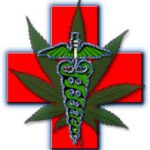Source: Radio Netherlands Worldwide (RNW)
July 9, 2012
Robert Chesal
The new rules affecting the sale of cannabis in coffeeshops in three southern Dutch provinces are having an adverse effect according to a new study. The “weed pass” was introduced in the regions on May 1 this year.
The introduction of an obligatory membership card for coffeeshop customers has resulted in a sharp increase in the illegal street sale of cannabis and the emergence of a large and elusive network of telephone numbers that can be called for the supply of the drug.
Drug tourism
Researchers Nicole Maalsté and Rutger Jan Hebben have published these conclusions in a study commissioned by Epicurus, a private foundation dedicated to tracking the effects of the ‘weed pass,’ as it is widely called.
The weed pass was introduced in an attempt to stem the wave of “drug tourists” from Germany, Belgium and France who regularly crossed the Dutch border to buy cannabis in coffeeshops.
“We want cities and towns in the rest of the Netherlands to know what they can expect when the weed pass rules take effect there,” said Maalsté, a senior researcher at the University of Tilburg. The government in The Hague had earlier announced it intended to introduce the weed pass in the rest of the Netherlands.
The police have insufficient capacity to tackle the new forms of cannabis trade that have sprung up, the researchers found.
More illegal dealers
Cannabis in a coffeeshop costs at least 25% more than it does on the street. Particular groups are now avoiding the coffeeshops: the 18 to 24 age group and cannabis users with a non-Dutch ethnic background. “It is highly unlikely that these groups will stop smoking cannabis en masse,” the researchers concluded. Illegal dealers are not concerned with the age of their customers, and they also sell other drugs besides hashish and marijuana. “This is raising the risk that young people buying cannabis will come into contact with hard drugs.”
The researchers found several minorities are involved in the illegal sale of cannabis in the southern Dutch provinces. These include ethnic Moroccan youths from the more northern cities of Utrecht and Rotterdam, as well as Albanians, Hungarians, Romanians and people with an immigrant background from northern France. One coffeeshop owner from Roermond counted 25 drug runners in a single day: “The street dealers work in shifts. They come by train or car, work their shift and go back to the city where they live.”
In the southernmost province of Limburg, it is mainly ‘well-behaved’ minors who are being recruited to sell on the street. In the city of Geleen, a 9-year-old boy on a bicycle was arrested for asking passers-by whether they wanted to buy drugs.




 Creative Commons Attribution
Creative Commons Attribution